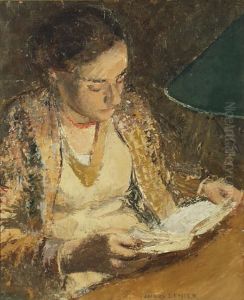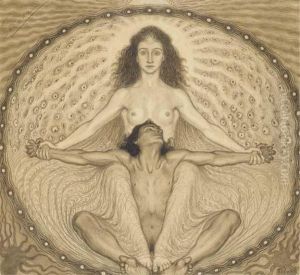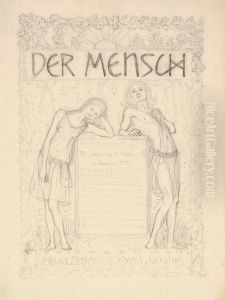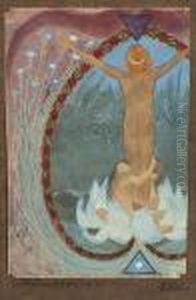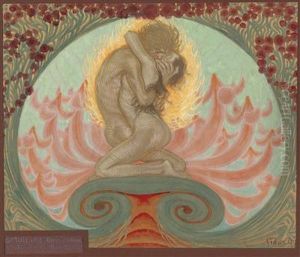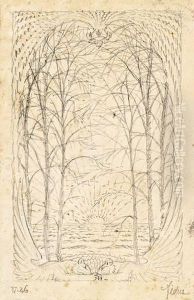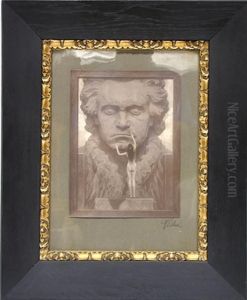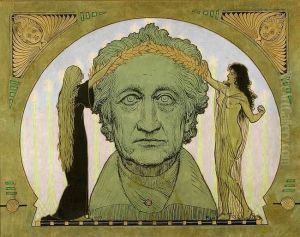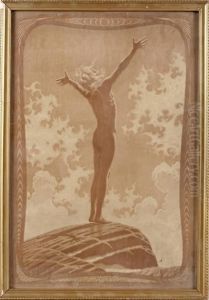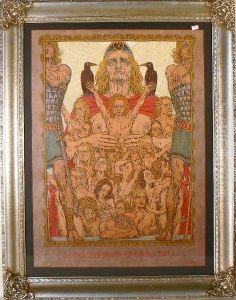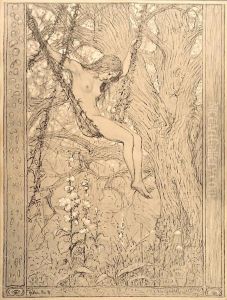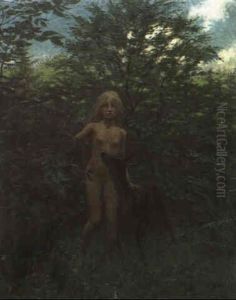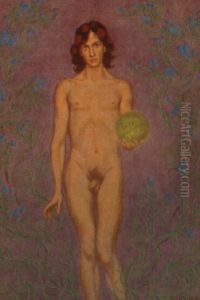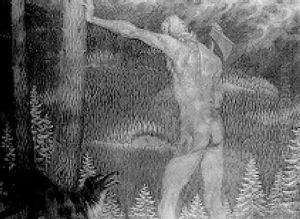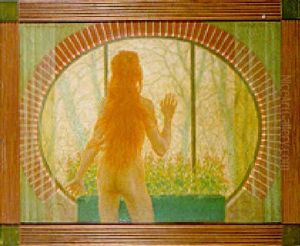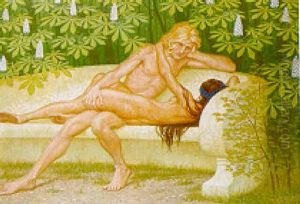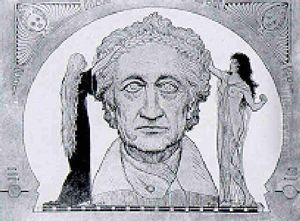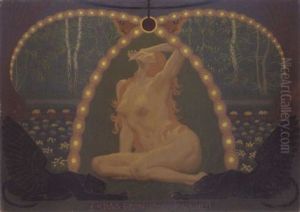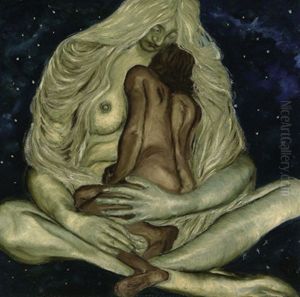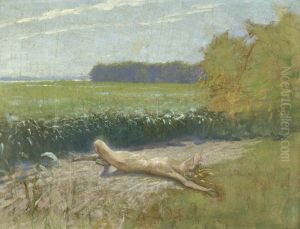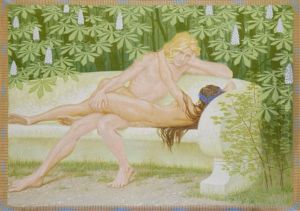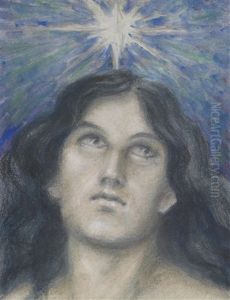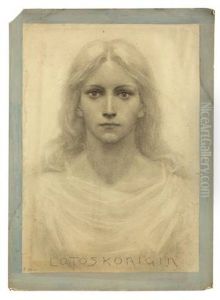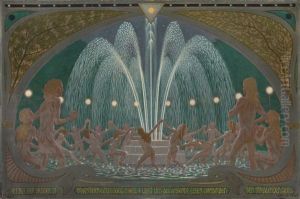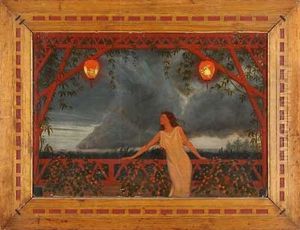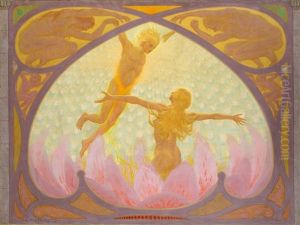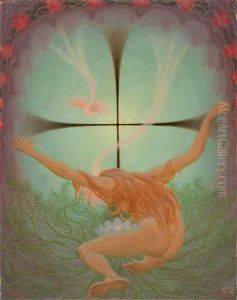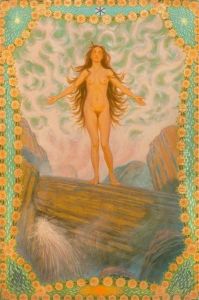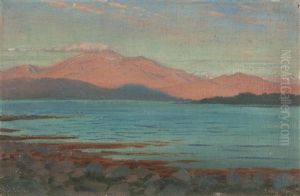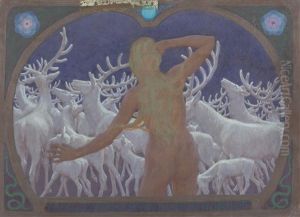Hugo Hoppener Fidus Paintings
Hugo Höppener, better known by his pseudonym Fidus, was a German painter and illustrator closely associated with the Jugendstil and Art Nouveau movements, as well as with the German life reform and youth movement of the late 19th and early 20th centuries. Born on October 8, 1868, in Lübeck, Germany, Fidus grew up in a period marked by significant social and artistic changes, which deeply influenced his artistic development and ideological beliefs.
Fidus received his formal art education at the Academy of Arts in Berlin, where he was significantly influenced by the mystical and spiritual trends of the time. He became an ardent supporter of the Lebensreform (life reform) movement, which advocated for a return to nature, vegetarianism, and sexual liberation, among other things. These beliefs profoundly shaped his artistic output, which is characterized by its celebration of nature, the human body, and spiritual themes.
Throughout his career, Fidus created a vast number of illustrations, paintings, and graphic works that featured symbolic and often mystic motifs. He is perhaps best known for his iconic image 'Lichtgebet' (Prayer to Light), which depicts a naked man stretching his arms towards the sun. This image became emblematic of the Jugendstil movement and was widely reproduced and admired at the time.
Fidus's work was initially celebrated for its innovative style and its alignment with the cultural movements of his day. However, his popularity waned after World War I, as the political and social climate of Germany shifted. Despite this, he continued to produce art and remained committed to his philosophical and spiritual beliefs until his death on February 23, 1948, in Woltersdorf, Germany.
Fidus's legacy is complex; while his contributions to the Jugendstil movement and his influence on the visual culture of the German life reform and youth movements are undeniable, his work has also been scrutinized for its ideological connections to movements that later aligned with National Socialism. Nonetheless, Fidus remains a significant figure in the history of German art, particularly for his unique blending of art, spirituality, and social reform ideals.
